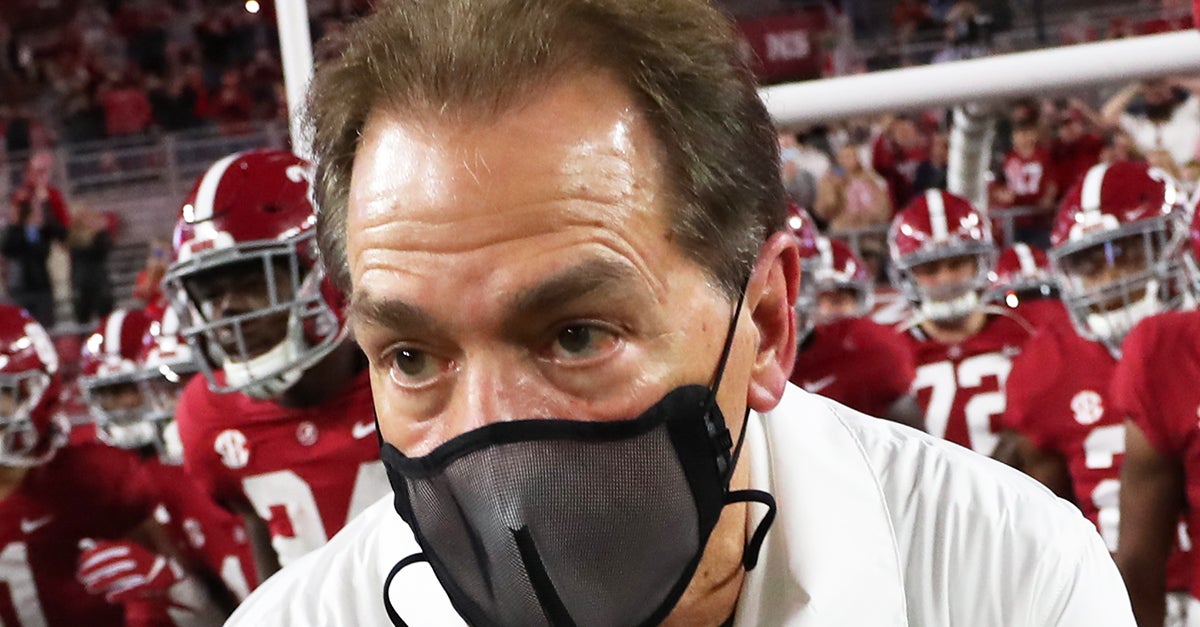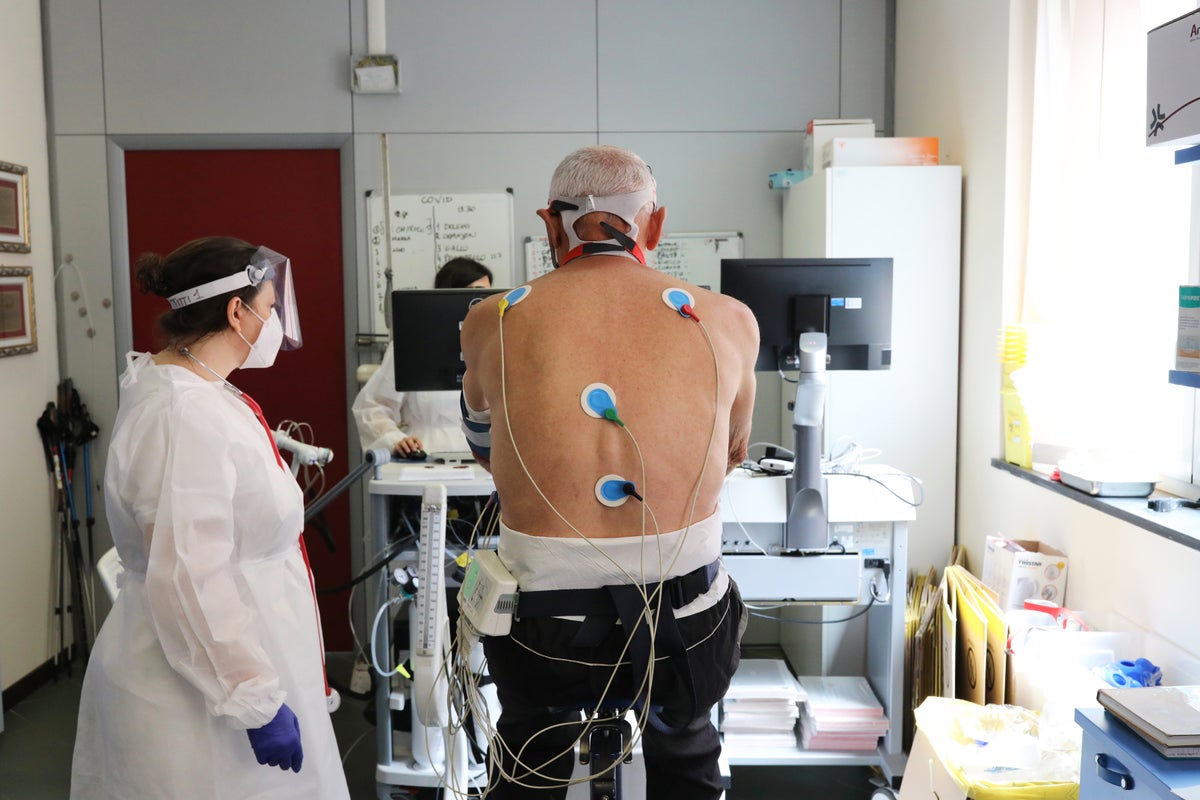Let me clarify, active athletes have a death rate is 0%!Rounding down?
- Francisco Garcia (21), Spanish football coach, died on March 17 in Malaga
- Shobushi (28), Japanese sumo wrestler, died on May 13
- Muhammad Alloush (44), Egyptian football coach, died on June 29
I left out all of the ones over 50.

List Of Indian And World Sports Personalities Died Of COVID-19
Here is a list of notable sports personalities who have died due to COVID-19 and related complicationswww.outlookindia.com
And here is a short list of current athletes who recovered --

Sports stars who tested positive for COVID-19
Here’s a list of sports stars who tested positive for COVID-19247sports.com
You are using an out of date browser. It may not display this or other websites correctly.
You should upgrade or use an alternative browser.
You should upgrade or use an alternative browser.
D1 college soccer under threat
- Thread starter jpeter
- Start date
A 23 year old female professional futsal player died from covid. She was on the Iranian National Futsal team.Let me clarify, active athletes have a death rate is 0%!
A 19 year old student, a basketball player, at Appalachian State, died from Covid-19 complications. Neither athlete had underlying conditions. I guess they weren't active enough for you.

COVID-19 Can Wreck Your Heart, Even if You Haven't Had Any Symptoms
A growing body of research is raising concerns about the cardiac consequences of the coronavirus

Covid-19 Can Cause Heart Damage—Even If You Are Asymptomatic
While SARS-CoV-2 may cause cardiac symptoms such as chest pain or shortness of breath resulting in heart attacks and blood clots, there is also the possibility that the virus may cause significant heart damage and inflammation—but without producing any immediate or more noticeable cardiac symptoms.
 www.forbes.com
www.forbes.com
These articles scared my player into social distancing and not going to cafes, etc. School and soccer is all that she does.
Espy ignores me but you did say athletes, not coaches. So those two are out. The last example is a heavy set sumo dude. Was he obese?Let me clarify, active athletes have a death rate is 0%!
Mad Hatter
SILVER
"Previously reported rates of myocarditis in COVID-19 patients ranged from 14% among recovered athletes to 60% in middle-aged and older recovered patients."
"The findings suggest that myocarditis caused by COVID-19 may be relatively rare, according to Vander Heide and co-author Dr. Marc Halushka."

 www.upi.com
www.upi.com
"The findings suggest that myocarditis caused by COVID-19 may be relatively rare, according to Vander Heide and co-author Dr. Marc Halushka."

Heart inflammation from COVID-19 less common than thought - UPI.com
Inflammation of the heart muscle, or myocarditis, is less common in COVID-19 patients than previously thought, according to a new study.
 www.upi.com
www.upi.com
"Previously reported rates of myocarditis in COVID-19 patients ranged from 14% among recovered athletes to 60% in middle-aged and older recovered patients."
"The findings suggest that myocarditis caused by COVID-19 may be relatively rare, according to Vander Heide and co-author Dr. Marc Halushka."

Heart inflammation from COVID-19 less common than thought - UPI.com
Inflammation of the heart muscle, or myocarditis, is less common in COVID-19 patients than previously thought, according to a new study.www.upi.com
Did you read beyond the headline?
kickingandscreaming
PREMIER
Do the two quotes he showed count?Did you read beyond the headline?
Do the two quotes he showed count?
He could have gotten that much from his twitter feed.
kickingandscreaming
PREMIER
Did you read the article?He could have gotten that much from his twitter feed.
MSK357
GOLD
he doesnt really care, grandpa just wants someone to talk to.Did you read the article?
Agree, it was a small sample, 277 people who actually died of covid. It was not a large study of people who have had it and recovered.Did you read beyond the headline?
Agree, it was a small sample, 277 people who actually died of covid. It was not a large study of people who have had it and recovered.
Since we are talking D1 soccer players (presuming that from the thread title) the implications of long-term damage to surviving athletes would seem to be more germane.
Did you read the article?
Yes, I did, and other articles that spoke of the study. They researched the damage in dead people, not living athletes.
kickingandscreaming
PREMIER
We definitely don't want them doing autopsies on living athletes. I guess the good news here is that there aren't enough dead athletes to autopsy. Let's hope it stays that way.Yes, I did, and other articles that spoke of the study. They researched the damage in dead people, not living athletes.
We definitely don't want them doing autopsies on living athletes. I guess the good news here is that there aren't enough dead athletes to autopsy. Let's hope it stays that way.
There are other ways to "see" internal damage besides autopsies.
kickingandscreaming
PREMIER
This study simply indicated whether myocarditis was present in those dying of COVID. The fact that it was much lower than initially reported is good news. Period. There are a lot of athletes out there who got COVID and are back to athleting - for many months now. So far so good.Since we are talking D1 soccer players (presuming that from the thread title) the implications of long-term damage to surviving athletes would seem to be more germane.
I'm curious. How long do you think it will be before those "long-term damage" results start trickling in? Are you recommending not playing soccer until then?
This study simply indicated whether myocarditis was present in those dying of COVID. The fact that it was much lower than initially reported is good news. Period. There are a lot of athletes out there who got COVID and are back to athleting - for many months now. So far so good.
I'm curious. How long do you think it will be before those "long-term damage" results start trickling in? Are you recommending not playing soccer until then?
The initial reporting was based on people who are not dead.
Kind of depends on the fraction of patients who have long term impacts. So far, we have anecdotes of long haul covid patients, and anecdotes of covid patients returning to play. No real data.This study simply indicated whether myocarditis was present in those dying of COVID. The fact that it was much lower than initially reported is good news. Period. There are a lot of athletes out there who got COVID and are back to athleting - for many months now. So far so good.
I'm curious. How long do you think it will be before those "long-term damage" results start trickling in? Are you recommending not playing soccer until then?
As a result, each person sees what they want to see. People who want more caution point to the long haul anecdotes. People who want less caution point to the return to play anecdotes.
Kind of depends on the fraction of patients who have long term impacts. So far, we have anecdotes of long haul covid patients, and anecdotes of covid patients returning to play. No real data.
As a result, each person sees what they want to see. People who want more caution point to the long haul anecdotes. People who want less caution point to the return to play anecdotes.
There is a theory floating about that we should let the kids play because they are not likely to die from it. The fact that recovered persons, including those who never exhibited any symptoms, may have long-lasting or permanent heart damage should not be ignored.
I have two cousins who contracted rheumatic fever as children in the '40s. Both recovered, but one of them had severe enough heart damage that he failed the Air Force enlistment physical and was sent home.
--and they didn't have to do an autopsy to find out--
Coo Coo Doctor, I may die in my sleep. I may crash on my way to Vegas for a soccer game tomorrow. I maaaaaaaay!!!! My gosh, you won, can we at least have the kids play soccer. My kid and all the other kids I know what to play and are willing to risk what "may" happen later. Good grief. You seem so active now too. Not having Messy as your other avatar has made you go extra.There is a theory floating about that we should let the kids play because they are not likely to die from it. The fact that recovered persons, including those who never exhibited any symptoms, may have long-lasting or permanent heart damage should not be ignored.
I have two cousins who contracted rheumatic fever as children in the '40s. Both recovered, but one of them had severe enough heart damage that he failed the Air Force enlistment physical and was sent home.
--and they didn't have to do an autopsy to find out--


